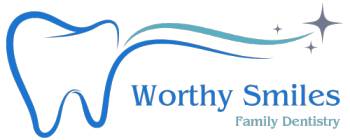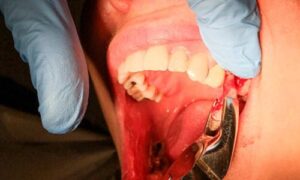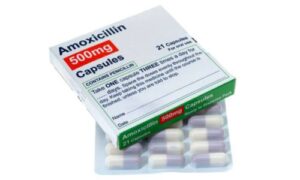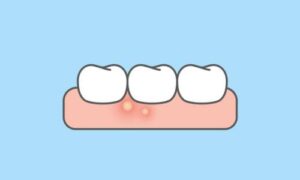Good oral health is essential for children, not only for their overall well-being but also for developing essential life skills. Healthy teeth and gums make it possible for kids to eat a wide range of nutritious foods, which provides them with the vitamins, minerals, and energy they need to grow and develop. Poor oral health can lead to problems with tooth decay and gum disease, which can result in pain, abscesses, eating difficulties, and poor nutrition. It can also cause children to feel embarrassed or uncomfortable when smiling or socializing with others.
The American Academy of Pediatric Dentistry recommends that all children visit a pediatric dentist by their first birthday. During regular appointments, the dentist will assess the condition of your child’s teeth and gums and provide preventive care such as fluoride treatments and sealants. The dentist will also advise on healthy eating habits and offer tips on effective brushing techniques. Regular visits also help establish an important relationship between the child and the dentist; this early exposure can help make future dental experiences less traumatic for kids naturally anxious about dental procedures.
Best oral habits for the kids
Establishing good oral hygiene habits in childhood is vital so that kids carry them into adulthood. Teaching children at a young age how to brush correctly (using circular motions) helps ensure that they remove plaque from their teeth effectively. It’s also necessary to floss at least once per day to keep between-teeth areas clean; teaching your kid how to floss is just as important as teaching them how to brush! Additionally, reducing sugary snacks between meals helps prevent enamel erosion caused by acidity levels in plaque bacteria; introducing healthy snacks such as fruits benefits oral health AND overall nutrition!
Furthermore, providing your child with mouthguard protection during contact sports helps protect against tooth damage; many dentists offer custom-made mouthguards which fit more comfortably than store-bought alternatives. Seeking prompt treatment if any issues arise can go a long way toward protecting your child’s oral health too! For example, if a baby tooth is knocked out due to injury, it may require immediate attention from a pediatric dentist since the timing of permanent tooth growth may be affected by the damage done to baby teeth roots.
Read – Different Stages of Tooth Decay
It’s a child’s right to have good oral health
Maintaining good oral health in childhood is incredibly important, requiring diligent efforts from parents and children alike! Providing preventive care through regular visits to the pediatric dentist helps ensure that minor issues don’t become bigger ones down the line; establishing healthy habits such as brushing twice per day with fluoride toothpaste and flossing daily helps protect against cavities; limiting sugary snacks prevents enamel erosion due to acidity levels caused by certain bacteria; lastly investing in protective equipment such as mouthguards while playing contact sports offers extra safeguards against potential harm caused by trauma or injury.
Children’s Teeth Erupt and Fall Out
Children may be a tremendous joy, but they can also provide us with some unique problems in the early years of their lives. This is particularly true at six months when teething starts. Parents face new challenges while dealing with an uncomfortable and pained infant. Although teething is a reality, knowing what to expect can help you support your child. Learning about how their teeth emerge and why they ultimately lose them on the route to gaining their adult teeth is one of the finest ways to be ready for this time in their life.
How Do the Teeth Emerge in My Children?
You’ll first notice your child’s teething symptoms around six months. Your children’s baby teeth have been developing in their jaws over the last several months. And they are now beginning their painful ascent through the gums and out into the world. The incisors, sometimes known as “bunny teeth,” found at the front of the mouth, are usually the first teeth to start coming in. Nursing moms often become aware of these teeth for the first time when their infant starts trying them out while eating. From this time until the age of three, you may anticipate a constant development of teeth erupting until they have all 20 of their baby teeth.
What Source Are These Teeth?
The aforementioned “tooth buds,” which are also responsible for the development of their adult teeth, are what give rise to teeth. Some individuals will also have third molars, which are a genetic throwback. Some individuals still have these teeth coming in because they were there. When our diets included foods that were tougher to chew and digest than the foods we eat now. They may be referred to as “Wisdom Teeth.” The good news is that you usually only have to deal with them once a person is in their late teens. When these teeth grow, they may create all kinds of complications.
How They Lose Their Teeth and Fall Out
Have you ever wondered precisely what happens to cause Children’s Teeth to Erupt and Fall Out? In essence, the tooth buds create a brand-new set of teeth that begin to emerge underneath the existing teeth. The process results in the death of the old roots and the pushing up. And out of the way of the teeth, causing them to become loose before they fall out. When your kid complains of having loose teeth, it is usually the first indication that anything is wrong. While you may be tempted to assist with the tooth’s removal. Letting it fall out naturally on its own is preferable. A still-living root may be broken if the tooth is attempted to be extracted too soon, which might result in an infection.














